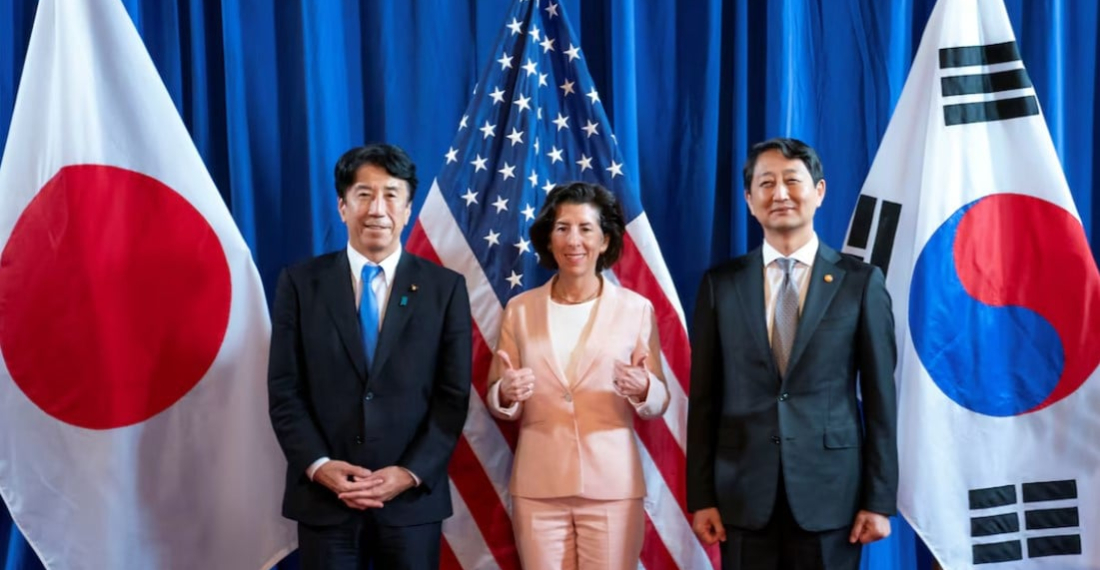Commerce and trade ministers from the United States (US), Japan and South Korea pledged on Wednesday (27 June) to work together on strategic issues such as artificial intelligence (AI) security, export controls, clean energy and semiconductor supply chains. "We are redoubling our efforts to work together," said US Commerce Secretary Gina Raimondo at the start of the meeting in Washington. "As leaders in manufacturing, services, technology and innovation, we must work together not only for the benefit of our countries, but for the world's security," she added. Raimondo was joined by Japan's Minister of Economy, Trade and Industry, Ken Saito, and South Korea's Minister of Trade, Industry and Energy, Ahn Duk-Geun, for this inaugural trilateral meeting, which was agreed by their leaders at a summit in Camp David in August.
Following the meeting, the ministers issued a statement highlighting their focus on strategic areas to enhance the security and prosperity of their citizens and the Indo-Pacific region. They pledged to prioritise cooperation to strengthen supply chain resilience in key sectors, including semiconductors and batteries, as well as AI security, critical minerals, cybersecurity and technical standards. "We agreed to work with like-minded countries, including Japan, the United States, and South Korea, to design a market where factors other than price are fairly evaluated to achieve strong and reliable supply chains for strategic materials," Saito said.
Last month, President Joe Biden announced plans to significantly increase tariffs on critical minerals from China as part of Washington's strategy to reduce China's dominance in critical minerals supply chains. In March, a Commerce Department official revealed that the US was urging allies to prevent domestic companies from servicing certain chipmaking tools for Chinese customers, a key component of US efforts to impede China's chipmaking capabilities. "We expect the South Korea-US-Japan industry ministers' meeting to serve as a significant institutional basis for deepening and expanding industrial cooperation among the three countries and jointly responding to global risks," Ahn said, underlining the meeting's potential impact.






